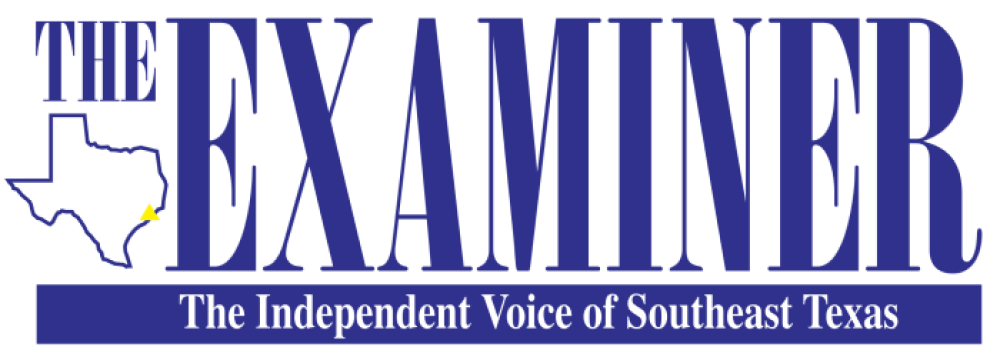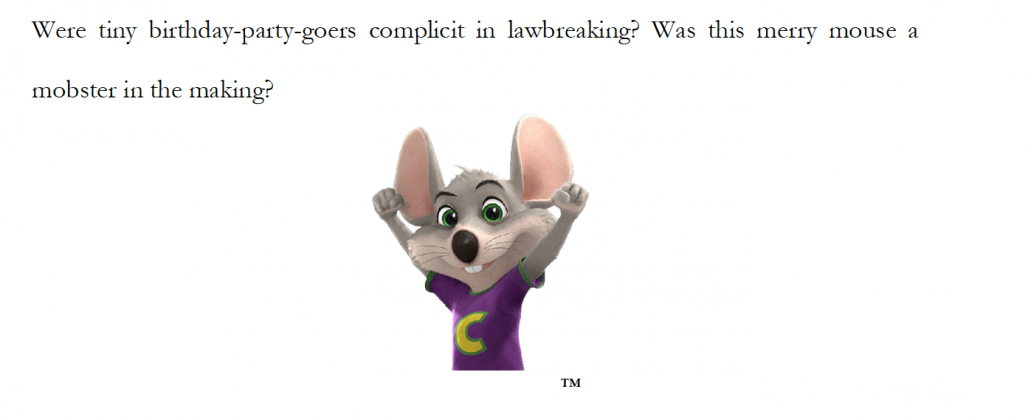Game rooms proliferating in Texas have been dealt a blow to the “fuzzy animal” legal loophole allowing the businesses to profit off of casino-style play on “8-liner” gaming machines. A March opinion from a Texas appeals court deems the gaming machines “lotteries,” which are unlawful in the state of Texas, and therefore outside the rule of the Constitution, regardless of any “fuzzy animal” exception granted to enterprises such as Chuck E. Cheese and Dave & Buster’s.
Jefferson County District Attorney Bob Wortham explains that, with the court’s opinion asserting 8-liner games cannot be lumped in with children’s amusement machines under the protection of state law, the adult gaming machines are free to be classified as they truly are: Gambling devices.
“Gambling is illegal in the state of Texas,” Wortham said. “You cannot add exceptions like the ‘fuzzy animal’ rule to make it legal. The court got it right.”
Police and public complaints regarding the alleged illegal activity taking place at local “game rooms” has been commonplace in recent years – Southeast Texas experiencing a sort of boom in neighborhood gaming dens directly proportionate to similar upticks in criminal activity in close proximity, city and county officials have documented time and time again. Although regulation has been undertaken to varying degrees by communities including Lumberton, Vidor, Beaumont, Port Arthur, Orange County, Hardin County and Jefferson County, municipal and county attorneys have long reported hindrances to corralling the suspected illegal enterprises due to state legislation that has remained unclear as to 8-liner legality.
Beaumont Planning Director Chris Boone, when speaking to The Examiner as the city was experiencing a growth in game room businesses predominantly in low-income neighborhoods, said the city was unable to deny business permits to game room purveyors – despite law enforcement pleas denoting increased criminal activity at the game room locations. According to Boone, the game room businesses were regulated under the Texas Occupations Code, which granted an exception for operating gaming machines that awarded prizes of fuzzy animals or like products valued at less than $5 dollars, also referred to as the “fuzzy animal” exception.
The “fuzzy animal” exception was written into the Texas Occupations Code pursuant to constitutional language allowing for children’s games to operate. However, as communities throughout Texas quickly learned, the rules meant to regulate things like crane machines were then interpreted to allow unfettered growth in adult entertainment 8-liner proliferation.
Over the last few years, Boone and other city planners have been eying Fort Worth litigation challenging the Occupations Code covering 8-liner machines in the same way it covers games in use at Chuck E. Cheese, a children’s pizza parlor that’s typically mentioned when trying to support the legality of gaming machines. For years, the Fort Worth case has been shuffled through the Texas court system, with a litany of challenges to any rulings made. The case, which pits the city of Fort Worth and City Manager David Cook versus two game rooms and game room owners, made its way all the way to the Texas Supreme Court, which then kicked back the case to the Texas Second Court of Appeals, requiring the justices to answer the question: Are 8-liner gaming machines unconstitutional or illegal?
The short answer: Yes, and maybe.
“By the 19th century, everyone understood that lotteries comprise chance, prize, and consideration. Given the expansive common-law definition – chance, prize, and consideration – it’s hard to imagine any circumstance under which a slot machine is not a lottery,” Justice Elizabeth Kerr wrote on behalf of the three-judge panel opinion. Texas, the justice further explains, has clear legal language banning lottery play by private enterprises written in the Constitution. “Because we conclude that these 8-liner video slot machines are lotteries – a term more expansive than most would assume – they are unconstitutional.”
Stopping short of answering the question of the legality of the machines, the justices opine that the “or” requires they only tackle one of the words in the Supreme Court’s command.
“On these facts and in this procedural posture, answering one of those questions is enough,” Kerr wrote. “Any thoughts we might offer on the machines’ possible illegality and the fuzzy-animal exclusion’s constitutionality would be dicta (incidental.)”
Still, the justices determined, whatever ordinances and rules the city puts on game room purveyors cannot be challenged with Occupations Code exceptions or operational benefits afforded legitimate businesses under the same rule.
“Because the operators’ 8-liner machines are lotteries and thus are unconstitutional machines, Chapter 2153 of the Occupations Code does not preempt the city’s ordinances regulating game rooms and 8-liners,” the opinion reads, referencing Occupations Code stipulations that the code does not authorize or permit “unconstitutional” machines, or those that fall out of line with the Texas Penal Code.
Clearing up one issue, however, the justices raise another.
“Left open is what happens now with those ordinances,” placed on game rooms operating what the court has now determined are unconstitutional lotteries, Kerr footnoted in the opinion delivered March 17.
Texas’ Supreme Court is wondering, too.
“Of course, a finding that the machines are unconstitutional or illegal would also lead to the question whether the city could license, regulate, and tax them through the city’s ordinances. That question, however, has not been raised in this case,” Supreme Court justices noted. “The city fails to explain how, if the state may not regulate an allegedly illegal machine, the city itself may nevertheless validly impose and enforce a comprehensive regulatory scheme on that same machine.”
District Attorney Wortham has an idea of what to do.
“It’s a very well-written opinion,” he said of the judicial words written in support of what he’s always known – that 8-liner purveyors are hiding behind Chuck E. Cheese to run dens of illegal gambling. “It very clearly says that if people want gambling in the state of Texas, you have to change the Constitution. You can’t come up with gimmicks to make it legal.”
Wortham said that the justices’ opinion will allow law enforcers to shut down illicit game rooms operating outside the confines of the law, to the great benefit of the communities that have been negatively impacted by the businesses for far too long.
“The real losers in this are the babies and the people who participate in this gambling,” Wortham said. “They lose their money at these places. They miss house notes; they don’t have food for their children… It hurts our economy. It hurts our city. It hurts our state.”
Wortham said he is now working to facilitate conversation with the area’s police chiefs and county sheriff, “to get them to start enforcing the law now that the court has ruled.”



